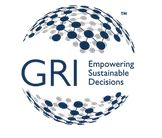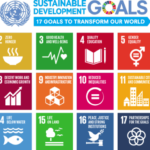
Today, international sustainability standard setter GRI and the Danish Institute for Human Rights (DIHR) announced a new partnership to enable business and government action to improve human rights around the world. GRI and DIHR will collaborate to promote sustainability reporting as part of governments’ ongoing development and implementation of National Action Plans on Business and Human Rights. The two organizations will also promote human rights reporting under the 2030 agenda as a way to make the link between the UN Sustainable Development Goals (SDG) and human rights. The partnership was officially launched during day two of the 5th GRI Global Conference. The announcement comes just one week after the EU Roadmap to Business and Human Rights Conference in Amsterdam, organized in the context of the Dutch Presidency of the EU, where politicians, business and civil society leaders discussed ways to advance the EU’s human rights agenda. Numerous actors at the conference, including business, made strong calls for governments to develop National Actions Plans for the implementation of the UN Guiding Principles on Business and Human Rights.
“Business and finance are key to achieving the Global Goals on sustainable development. But not all business is good business. The protection of human rights enables sustainable development and is essential to prosperity. We know that strong public institutions, healthy and educated people, and equality of opportunity are key drivers of economic growth”, says DIHR Deputy Director, Eva Grambye. “We have collaborated with GRI for the past 15 years to promote human rights in the corporate sphere. Now we are turning to governments. They too have to realize that human rights are not a cost but an investment with high returns. Protecting and promoting human rights is both the right thing to do and the smart thing to do.”
Both GRI and DIHR share the understanding that sustainability reporting is a critical tool for creating greater transparency around human rights issues such as gender inequality, child labor and the rights of indigenous people to the land on which they live. Going forward GRI and DIHR will develop tools and instruments to support governments in the development of National Action Plans on Business and Human Rights, while promoting human rights and sustainability reporting in the context of the SDGs. One of the desired outcomes of the partnership will also be to stimulate further transparency around government procurement practices.
“Each year, 12% of GDP in OECD member countries is spent on purchasing goods and services. This usually occurs without these public agencies holding themselves accountable for the conditions under which those products are produced. Businesses are no longer allowed to operate this way, and rightfully so. It’s time for governments to lead by example,” said GRI Deputy Chief Executive Teresa Fogelberg. “We are proud to partner with DIHR, one of the world’s leading national human rights institutions, to build a bridge between business and government. Together, we are working to help them both contribute to the 2030 development agenda in ways that create a more equitable world.”
Following the official launch of the partnership, GRI is convening sessions at the 5th GRI Global Conference on important human rights topics including linking policy and practice on corporate human rights reporting, the role of private sector collaboration in achieving the UN Sustainable Development Goals, reporting on disability, and respect for land rights.



